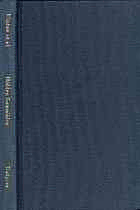
Hidden genocides : power, knowledge, memory PDF
Preview Hidden genocides : power, knowledge, memory
Hidden Genocides Genocide, Political Violence, Human Rights Series Edited by Alexander Laban Hinton, Stephen Eric Bronner, and Nela Navarro Alan W. Clarke, Rendition to Torture Lawrence Davidson, Cultural Genocide Alexander Laban Hinton, ed., Transitional Justice: Global Mechanisms and Local Realities after Genocide and Mass Violence Walter Richmond, The Circassian Genocide Irina Silber, Everyday Revolutionaries: Gender, Violence, and Disillusionment in Postwar El Salvador Samuel Totten and Rafiki Ubaldo, eds., We Cannot Forget: Interviews with Survivors of the 1994 Genocide in Rwanda Ronnie Yimsut, Facing the Khmer Rouge: A Cambodian Journey Hidden Genocides Power, Knowledge, Memory EDITED BY ALEXANDER LABAN HINTON, THOMAS LA POINTE, AND DOUGLAS IRVIN-ERICKSON RUTGERS UNIVERSITY PRESS NEW BRUNSWICK, NEW JERSEY, AND LONDON LIBRARY OF CONGRESS CATALOGING-I N- PUBLICATION DATA Hidden genocides : power, knowledge, memory / edited by Alexander Laban Hinton, Thomas LaPointe, and Douglas Irvin-E rickson. pages cm. — (Genocide, political violence, human rights series) Includes bibliographical references and index. ISBN 978– 0– 8135– 6162– 2 (hardcover : alk. paper) — ISBN 978– 0– 8135– 6163–9 (pbk. : alk. paper) — ISBN 978–0 – 8135– 6164– 6 (e- book) 1. Genocide—H istory. I. Hinton, Alexander Laban. II. LaPointe, Thomas, 1962– III. Irvin- Erickson, Douglas, 1982– HV6322.7.H53 2014 364.15'1— dc23 2013006016 A British Cataloging-i n- Publication record for this book is available from the British Library. This collection copyright © 2014 by Rutgers, The State University Individual chapters copyright © 2014 in the names of their authors All rights reserved No part of this book may be reproduced or utilized in any form or by any means, electronic or mechanical, or by any information storage and retrieval system, without written permission from the publisher. Please contact Rutgers University Press, 106 Somerset Street, New Brunswick, NJ 08901. The only exception to this prohibition is “fair use” as defined by U.S. copyright law. Visit our website: http://rutgerspress.rutgers.edu Manufactured in the United States of America CONTENTS List of Illustrations vii Acknowledgments ix Introduction: Hidden Genocides: Power, Knowledge, Memory 1 DOUGLAS IRVIN-E RICKSON, THOMAS LA POINTE, AND ALEXANDER LABAN HINTON PART ONE Genocide and Ways of Knowing 1. Does the Holocaust Reveal or Conceal Other Genocides?: The Canadian Museum for Human Rights and Grievable Suffering 21 A. DIRK MOSES 2. Hidden in Plain Sight: Atrocity Concealment in German Political Culture before the First World War 52 ELISA VON JOEDEN- FORGEY 3. Beyond the Binary Model: National Security Doctrine in Argentina as a Way of Rethinking Genocide as a Social Practice 68 DANIEL FEIERSTEIN v vi CONTENTS PART TWO Power, Resistance, and Edges of the State 4. “Simply Bred Out”: Genocide and the Ethical in the Stolen Generations 83 DONNA- LEE FRIEZE 5. Historical Amnesia: The “Hidden Genocide” and Destruction of the Indigenous Peoples of the United States 96 CHRIS MATO NUNPA 6. Circassia: A Small Nation Lost to the Great Game 109 WALTER RICHMOND PART THREE Forgetting, Remembering, and Hidden Genocides 7. The Great Lakes Genocides: Hidden Histories, Hidden Precedents 129 ADAM JONES 8. Genocide and the Politics of Memory in Cambodia 149 ALEXANDER LABAN HINTON 9. Constructing the “Armenian Genocide”: How Scholars Unremembered the Assyrian and Greek Genocides in the Ottoman Empire 170 HANNIBAL TRAVIS 10. “The Law Is Such as It Is”: Reparations, “Historical Reality,” and the Legal Order in the Czech Republic 193 KRISTA HEGBURG Contributors 209 Index 213 ILLUSTRATIONS I.1. The Genocide Studies Canon 6 7.1 Map of Africa’s Great Lakes Region 130 8.1 Photograph of Executed Prisoner and Cell, Tuol Sleng Genocide Museum 158 8.2 Barbed-Wire Exterior of Building C, Tuol Sleng Genocide Museum 158 8.3 Map of Skulls, Tuol Sleng Genocide Museum 160 9.1 Map of Eastern Anatolia and and the Ottoman/Russian the Ottoman/ Persian Frontiers, circa 1914 173 9.2 Map of the Hakkari Region and the Ottoman/Persian Border Area 174 vii ACKNOWLEDGMENTS This volume developed out of an academic conference, “Forgotten Genocides: Memory, Silence, and Denial,” held in 2011 in New Jersey, co-s ponsored by the Center for Peace, Justice and Reconciliation at Bergen Community College and the Center for the Study of Genocide, Conflict Resolution, and Human Rights at Rutgers University. We are grateful to the many participants and audience members whose comments and contributions helped make the conference such a success. We extend special thanks to Seta Nazarian Albrecht and Joseph L. Basralian for raising the resources that made the conference and this volume possible. For their work on promotional materials for the conference and with the media, we thank the Bergen Community College public relations team, Joe Cavaluzzi and Tom Deprenda. We also thank David Eichenholtz and Chris O’Hearn for their organizational support, as well as Jade Adebo, Sara Bradsema, Stephen Bronner, and Yannek Smith. We are particularly grateful to Nela Navarro for the support, advice, and energy she devoted to this project. We wish to express our appreciation to the Bergen Community College Foundation and the Rutgers Newark Alumni Association for their support of the conference that led to this book. Thanks also to Barbara Yeterian for allowing us to use her painting Genocide Series #22 as the cover art for this volume. Finally, we are grateful to Marlie Wasserman, Marilyn Campbell, Allyson Fields, Molan Goldstein, and the rest of the team at Rutgers University Press for providing guidance and support throughout the editorial process, and to the external reviewers of this volume for their insights and suggestions. ix
